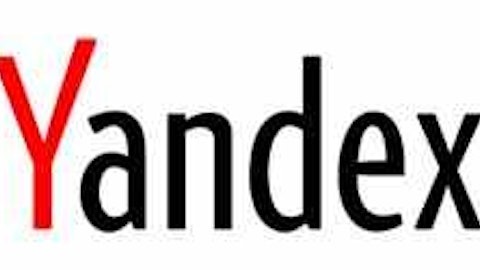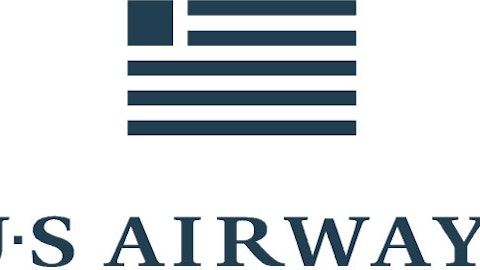Last Wednesday, Delta Air Lines, Inc. (NYSE:DAL) announced that it had placed an order for 40 new Airbus aircraft: 10 A330 widebody aircraft, and 30 A321 narrowbody aircraft. These new planes will be used to replace older, less-efficient aircraft that are ripe for retirement.

A Delta Airbus A330 airplane (courtesy of Delta)
Today, Delta Air Lines, Inc. (NYSE:DAL) operates a mixed fleet of The Boeing Company (NYSE:BA) and Airbus aircraft, along with older McDonnell Douglas aircraft, but the balance is skewed heavily in favor of The Boeing Company (NYSE:BA). But whereas some airlines have opted to simplify their fleets around a few aircraft types, Delta Air Lines, Inc. (NYSE:DAL)’s new order signals that it prefers to maintain a competitive balance between The Boeing Company (NYSE:BA) and Airbus. As a result, Boeing will have to settle for splitting Delta Air Lines, Inc. (NYSE:DAL)’s future orders with Airbus.
A mixed strategy
This recent order was Delta Air Lines, Inc. (NYSE:DAL)’s first mainline aircraft order since 2011, when the carrier ordered 100 Boeing 737-900ER aircraft. These Boeing aircraft — which will begin arriving in the next month or so — are similar in size to the A321s that make up the majority of Delta Air Lines, Inc. (NYSE:DAL)’s new order.
The 737-900ER is the largest aircraft in Boeing’s 737 family, and will seat 180 passengers in Delta’s configuration. Delta also operates the smaller 737-700 and 737-800 variants. Operating multiple aircraft variants from the same family allows an airline to economize on maintenance and training costs because the airplanes share a common design.
These benefits have driven some airlines to standardize on one or a few aircraft types. For example, Southwest Airlines Co. (NYSE:LUV) has historically only operated aircraft from the Boeing 737 family. When Southwest Airlines Co. (NYSE:LUV) acquired Boeing 717s through its purchase of AirTran Airways, it promptly turned around and signed a sublease agreement with Delta to get back to a single fleet type.
Delta’s outstanding orders with Boeing — it also has 18 orders for Boeing’s new 787 Dreamliner that will be delivered after 2020– gave Boeing a potential advantage in winning future orders from Delta. After all, ordering more aircraft from the same “type” would have allowed Delta to save on maintenance and training costs. Yet Delta instead opted to diversify by ordering similarly sized planes from Airbus. Why did Delta do this?
Opportunity knocks
In the past several years, Delta has consistently shown that it is willing to buck the industry consensus from a strategy perspective.
Earlier this year, Delta CEO Richard Anderson told Reuters, “Our ideal solution for buying airplanes is to compete Boeing against Airbus against used airplanes; compete GE against Pratt and Rolls-Royce so that we always have multiple engine manufacturers and multiple airframe manufacturers at the table.”
In other words, Delta believes that price trumps almost everything else when deciding which aircraft to buy. Therefore Delta is very opportunistic in the aircraft market. In this case, Airbus is transitioning from the A330 to the more advanced A350 and is about to update the A321 as the A321 NEO. While Airbus has seen solid demand for both new aircraft types, it also needs to keep assembly lines running until it completes the transition of its product portfolio.
As a result, Delta probably received very favorable pricing from Airbus for this deal (although the terms of the deal are confidential). With lower aircraft costs, Delta can justify the complexity of operating multiple fleet types in the same size range. Furthermore, by not being tied to just a few aircraft types, Delta can continue to pit Boeing and Airbus against each other to negotiate low purchase prices.
Foolish bottom line
Boeing may have won the previous round at Delta, but Delta’s recent agreement with Airbus shows that it’s not interested in being “exclusive” to one manufacturer. Boeing will have to continue to fight hard and offer compelling pricing to win future orders from Delta.
So far, this strategy of encouraging robust competition between Boeing and Airbus has worked well for Delta. Delta has highly competent maintenance and operations staffs, and so it can manage the complexity of multiple fleet types. It then reaps the benefits of lower capital outlays. This unusual fleet strategy has already allowed Delta to begin returning cash to shareholders. In all likelihood, it will continue contributing to Delta’s position at the head of the U.S. airline industry.
The article Airbus Scores a Point With Delta originally appeared on Fool.com is written by Adam Levine-Weinberg.
Fool contributor Adam Levine-Weinberg has no position in any stocks mentioned. The Motley Fool recommends Southwest Airlines.
Copyright © 1995 – 2013 The Motley Fool, LLC. All rights reserved. The Motley Fool has a disclosure policy.





